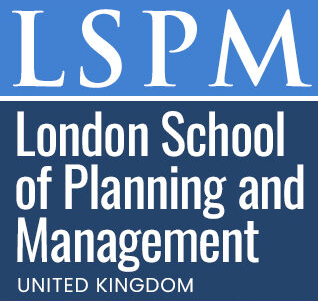Certified Professional in Aquaponics Technology Optimization
-- viewing now**Aquaponics Technology Optimization Certification Program** This certification program is designed for individuals interested in optimizing the operation of aquaponic systems. The course covers essential principles, best practices, and advanced techniques for maximizing system efficiency and yield.
2,896+
Students enrolled
GBP £ 149
GBP £ 215
Save 44% with our special offer
About this course
100% online
Learn from anywhere
Shareable certificate
Add to your LinkedIn profile
2 months to complete
at 2-3 hours a week
Start anytime
No waiting period
Course details
• • **Benefits of Aquaponics:** Explore the numerous benefits of aquaponics, including water conservation, reduced chemical use, and increased food production.
**Module 2: System Design and Planning** • • **Site Selection:** Learn the factors to consider when selecting a suitable location for an aquaponics system.
• • **System Design:** Explore the different components of an aquaponics system, including pumps, filters, nutrient tanks, and grow beds.
• • **Water Management:** Understand the importance of water management in an aquaponics system, including water flow, nutrient dosing, and waste removal.
**Module 3: Water Quality and Monitoring** • • **Water Quality Parameters:** Learn the essential water quality parameters to monitor in an aquaponics system, including pH, dissolved oxygen, nitrate, and phosphate.
• • **Water Quality Monitoring System:** Explore the various methods and equipment used for water quality monitoring in an aquaponics system.
**Module 4: Nutrient Management** • • **Nutrient Requirements:** Understand the nutrient requirements of different plant species commonly grown in aquaponics.
• • **Nutrient Delivery Systems:** Explore various methods for delivering nutrients to plants, including liquid fertilizers, solid fertilizers, and hydroponics.
**Module 5: Plant Selection and Culture** • • **Choosing Plants for Aquaponics:** Learn about the specific plant species that are well-suited for aquaponics and their optimal growing conditions.
• • **Crop Management:** Explore best practices for crop management, including spacing, irrigation, and pest control.
**Module 6: System Monitoring and Maintenance** • • **System Monitoring:** Learn how to monitor the performance of an aquaponics system, including water quality, nutrient levels, and plant health.
• • **System Maintenance:** Explore the regular maintenance tasks that are essential for the proper functioning of an aquaponics system.
**Module 7: Advanced Concepts in Aquaponics** • • **Advanced Nutrient Management:** Explore advanced techniques for nutrient management, such as nutrient film technique and aquaponics with vertical farming.
• • **Advanced System Design:** Learn about innovative designs and technologies in aquaponics, such as closed-loop systems and vertical aquaponics.
**Module 8: Case Studies and Best Practices** • • **Case Study 1:** Analyze a successful aquaponics system and learn from its design to operation.
• • **Case Study 2:** Explore a system's challenges and how they were overcome to achieve optimal performance.
**Module 9: Regulatory Compliance and Certification** • • **Aquaponics Regulations:** Learn about relevant regulations and certifications for operating an aquaponics facility.
• • **Certification Programs:** Explore the available certification programs for aquaponics professionals.
**Module 10: Future Trends and Innovations** • • **Emerging Technologies:** Explore the latest advancements and innovations in the field of aquaponics.
• • **The Future of Aquaponics:** Discuss the potential future of aquaponics and its impact on food security and sustainability.
Career path
Entry requirements
- Basic understanding of the subject matter
- Proficiency in English language
- Computer and internet access
- Basic computer skills
- Dedication to complete the course
No prior formal qualifications required. Course designed for accessibility.
Course status
This course provides practical knowledge and skills for professional development. It is:
- Not accredited by a recognized body
- Not regulated by an authorized institution
- Complementary to formal qualifications
You'll receive a certificate of completion upon successfully finishing the course.
Why people choose us for their career
Loading reviews...
Frequently Asked Questions
Course fee
- 3-4 hours per week
- Early certificate delivery
- Open enrollment - start anytime
- 2-3 hours per week
- Regular certificate delivery
- Open enrollment - start anytime
- Full course access
- Digital certificate
- Course materials
Get course information
Earn a career certificate

